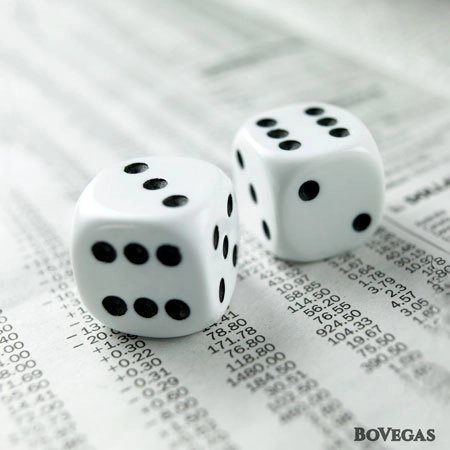



When you’re pursuing your goal of increasing your levels of winnings at the casino, you don’t just need some good fortune. Using math, gamblers are able to increase their total winnings. In baccarat or blackjack, where decks with a large number of cards are used, you simply can’t do without basic knowledge of arithmetic. Players need to subtract and add points, or perform calculations, in order to comply with the rules of their strategy. This way, gamblers can still determine the probability of a particular combination, while also learning about their chances of winning as well.
Having outstanding memory and analytical abilities can significantly increase one’s chances of finally succeeding in gambling. Until the 1970s, at least! Formally, a math player who keeps in mind the number of cards dealt from the deck and calculates the probability of the cards doesn’t violate any of the rules. Nevertheless, the land-based casinos don’t like to lose money, and the response to any excessively agile “counters” was to tighten the rules. For instance, for blackjack, they began to use a special device and several decks of cards (an “endless” deck), and then the dealer had the right to remove part of the cards from the deck without notice. It’s considered normal practice to subtract from the bets, to deduct from your account by way of appeals by security guards or substitute players. Masters of math counting, especially any of them who end up “annoying” the casino, run the risk of getting on an administration blacklist and getting a ban on visiting one or all casinos.
 Among card games, poker, bridge, blackjack and other gained recognition for a wide audience. Their common feature is the complete equality of the participants joining the next batch. However, success is more likely to come to those players who:
Among card games, poker, bridge, blackjack and other gained recognition for a wide audience. Their common feature is the complete equality of the participants joining the next batch. However, success is more likely to come to those players who:
Recognized masters of gambling are unanimous in their opinion that victory can only come with a careful analysis of all the possible combinations of their opponent’s cards. At the same time, popular games of skill have their own characteristics too.
Bridge is a game between two pairs of participants, where equal hands are played on several tables. Duplicate deals eliminate any element of chance and help identify the most skilled player.
Preferans is an intellectually challenging game with incomplete information about the layout. There are a number of popular varieties of the game, and the range of interpretations do increase uncertainty, which in turn increases the complexity of calculating both the odds and the interest in the game.
Poker is an “aristocratic” game, where success awaits the player who has collected the most profitable combination of 5 player cards; of course, the player also has to be psychologically capable of convincing his or her rivals of his or her superiority. The so-called “Texas Hold’em” game is a widespread option, and that’s the kind of gambling table which is ready to welcome the largest audience of participants.
But what about slot machines then? Well, the percentage of winnings in online casinos is subordinated to the random number generator. It works according to a strict mathematical sequence, which can’t be interrupted or changed. This is due to the fact that a slot is a machine both created and programmed by a person. It’s based on programs developed by specialists and they are based on the laws of mathematics and programming. Even a good mathematician is not able to determine in advance the symbol falling out on a reel, due to the absolute randomness of the results of each spin.
In this case, we rely upon the random number generator and get some guaranteed winnings without any cheating on the part of the casino. So for this reason, all online gambling machines are tested and verified by international auditing companies.
Probability theory studies the laws of random phenomena and the degree to which an event is likely to occur. So by using mathematical approaches, you can calculate what the gambler’s chances of winning are and with what probability a particular card will be drawn.
For example, if you toss a coin twice, the result of the second throw won’t depend on the first. This suggests that the actions taken do not in any way affect each other. In this case, it is possible to calculate the probability that one or another side of the coin will fall out according to the following formula: (1/2) × 2 = ¼ or 25%.
However, there are events when the probability also depends on the appearance or non-appearance of another event.
For example, what are the chances of each of the three random cards taken from the deck ending up as aces? Well, let’s take a standard deck with 52 cards (and four aces). The chance that an ace will be drawn the first time is 4 to 52. If the first card drawn is an ace, then after that, 51 cards will remain in the deck, including three aces. Then the probability will be 3 to 51. And if the second card drawn is also an ace, then the probability of a third card of the same value will be 2 to 50.
One of the basic concepts in gambling is mathematical expectation (the expected value). This indicator shows what average amount a casino visitor has the opportunity to win or lose if they make a specific bet. For any given bet, it’s possible to calculate such an indicator by multiplying the parameters of wins or losses by the level of possibility of these events. The expectation parameters are modified when there is a change in the size of received payments. The increase in payments indicates the prospects of your profit. So if the rates are diverse, then the amount of expectation will also be different.
To calculate the mathematical expectation, the following formula can be used:
ME = (number of winnings received / number of bets made) * amount of winnings received + (number of lost cases / number of bets made) * bet amount made
Knowing how to calculate the expectation, you can then determine for yourself the real size of a possible loss and understand whether it’s worth risking money. Of course, this is not going to stop inveterate players, but it will give people with a sober head an opportunity to evaluate the pros and cons.
 If each player could calculate the size of their future winnings or determine the sequence of the desired number, then all the casinos would just have to go bankrupt. However, they always manage to thrive and make a profit. This feature is associated with dispersion.
If each player could calculate the size of their future winnings or determine the sequence of the desired number, then all the casinos would just have to go bankrupt. However, they always manage to thrive and make a profit. This feature is associated with dispersion.
In mathematics, this is a concept which describes the size of the deviation of any value from its average value. For slot machines, this is an indicator of the degree of deviation of the obtained results from the mathematical expectations of the player. So it’s really dispersion that makes the game a surprise. And in addition, it’s this particular factor that triggers the principle of random wins and losses.
Dispersion itself is neither a positive nor a negative factor. This is a phenomenon that cannot be calculated mathematically. It’s beneficial to the casino, as a counterweight to constant wins over a long run, and to the player, as well as compensation for a negative expectation.
If you want to play in a casino, the main thing is to understand that games with a high value of mathematical expectations are more profitable for a player; for in these ones, the casino’s advantage over you is less. And when making a mathematical calculation for a future game, it’s necessary to understand that the result obtained may be different on account of variance.

Bingo is an engaging game where you can win simply by having a good time with your friends. At bingo halls, food and snacks are allowed, which enhances even a 1-hour game. To boot, it’s easy to increase your chances of winning, as the game depends on how many cards you’re playing. Interested? Then continue […]
Do you want to make your trips to the local casino more profitable? Then you should think about learning blackjack and playing for real money. However, you need to learn all about the ins and outs of this popular card game first. When reading a blackjack guide card players won’t face any difficulties, however, it […]
Italy will take severe precautionary measures to prevent minors from developing a gambling addiction by halting all sorts of betting-induced advertisements. It is said that games of chance destroy families, and that the prohibition of the ads that encourage betting should, therefore, preserve Italian integrity. Luigi Maio, Deputy Prime Minister of Italy, delivered a speech […]
Traditionally, the casino has always been a place not only for gambling and socializing, but also for showing off your most expensive luxury clothes. Indeed, when you’re thinking about what to wear for a night out at the casino, the first thing that comes to mind is some imagery from Casino Royale, with its general […]
If you love gambling and have been to a land-based casino at least once, you may have thought about becoming a dealer. Playing the same game but from the opposite side, while communicating with other players, sounds like a dream job, right? A dealer is a straightforward job, and you will be the heart and […]
On Monday September 14, MGM announced that it plans to open its first smoke-free casino at the end of September, when Park MGM will finally reopen its venues to players and tourists. The resort comprises around 2,990 rooms and various restaurants, and it’s set to be reopened on September 30. The venue has been closed […]
Online gambling has undoubtedly taken a place of true supremacy over the casino industry during the pandemic. And the reason for that is quite clear: online casinos are more accessible, and you can always count on some encouragement from the casino administration to help you boost your game. However, this digital revolution has only been […]
The large selection of online gambling sites out there can make players somewhat puzzled, and give them a feeling of uncertainty about making the right choice of casino. Each online gambling venue offers its own conditions, games, and various bonuses, of course; but the most important thing is the reliability of the casino and the […]